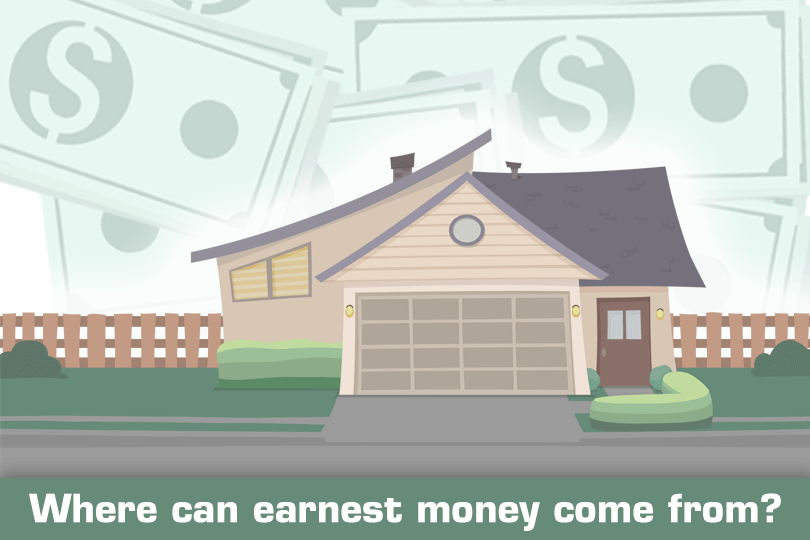What to Know About Earnest Money

But what do all of these have in common in many cases? The need to use home loan earnest money as part of the transaction.
What Is Earnest Money?
Fannie Mae describes earnest money this way. “Buyers demonstrate their commitment to purchasing a home by submitting an earnest money deposit. This money is held temporarily in an escrow account along with their offer.”
NerdWallet adds, “Earnest money is a good-faith deposit you make on a home to show the seller you're serious about buying. The money is deposited after the seller has accepted your offer and is usually kept in an escrow account. When the sale closes, you can keep the cash or apply the money toward the purchase.”
Earnest money is not a requirement, but borrowers should save between 1% and 3% of the asking price of a house or a price comfortably within their price range.
Serious buyers often bring earnest money to the bargaining table. Those without earnest money are at a disadvantage, especially in a competitive housing market.
Who Gets the Earnest Money?
It’s easy to assume this money goes right into the seller’s pocket, but depending on the nature of your transaction, you may find this cash is a “placeholder” applied toward closing costs or the home loan down payment once the deal is done.
How to Lose Your Earnest Money
If you break any purchase agreement terms, you could forfeit your earnest money to the seller. However, some contingencies do NOT allow the forfeiture of earnest money. Did the house appraise lower than the asking price?
With an FHA mortgage, you can withdraw from the transaction without losing your earnest money.
If the home inspection doesn't work out well, you may have heard about borrowers walking away from a deal without losing their earnest money.
But what some don’t know is that such a refund is NOT guaranteed UNLESS you have an inspection contingency clause built into your purchase agreement.
Never assume you can walk away without losing earnest money if you don’t have a contingency clause.
Such clauses can be put into your purchase agreement, covering appraisals (required by the FHA), inspections, and even a contingency that makes the purchase of the home dependent on the sale of the borrower’s previous house.
------------------------------
RELATED VIDEOS:
The ARM is an FHA Adjustable Rate Mortgage
A Few Tips About Your Fixed Rate Mortgage
Monthly Payments Establish Good Credit

Do you know what's on your credit report?
Learn what your score means.







